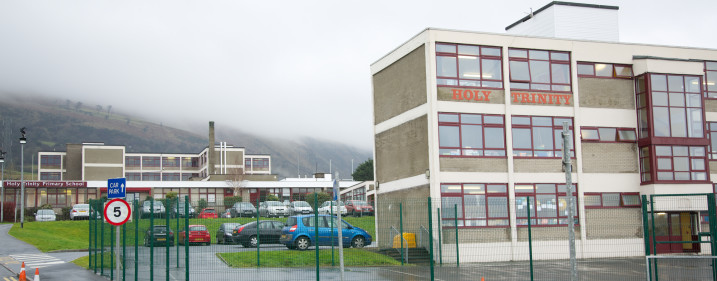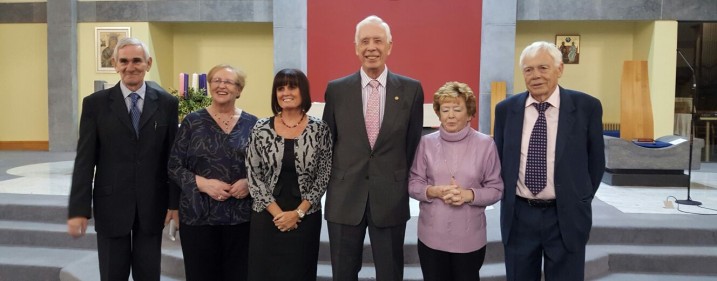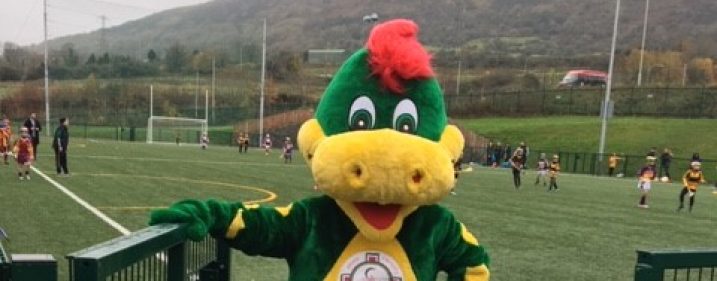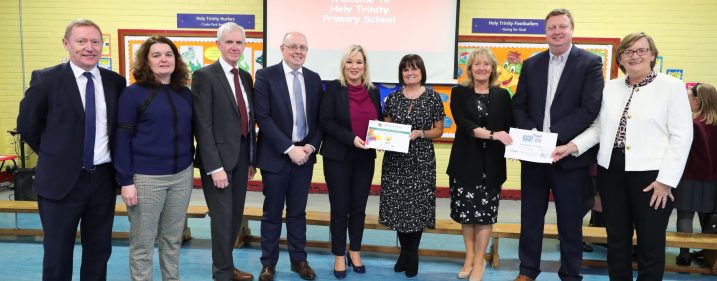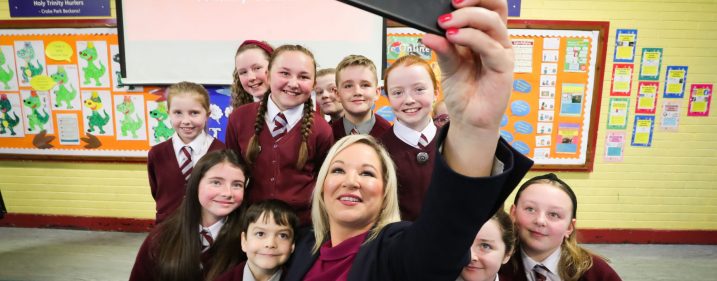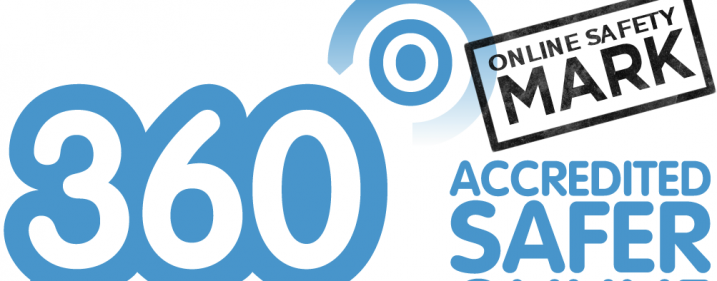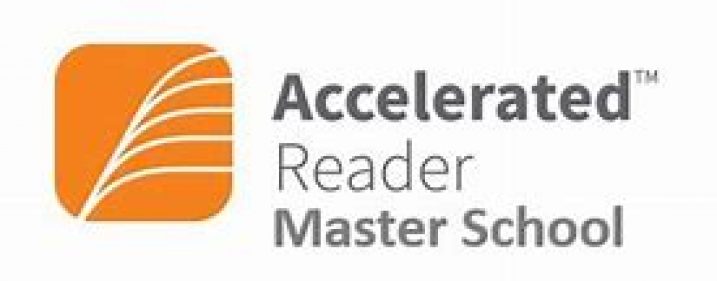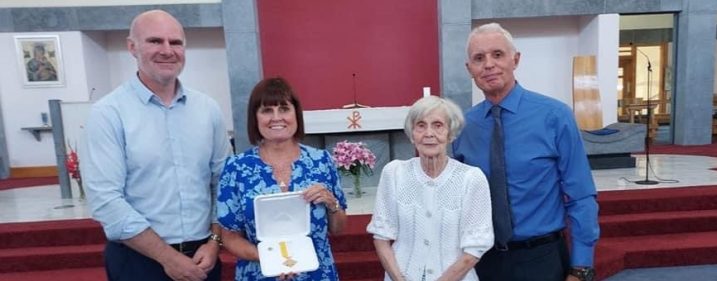Parental Involvement Policy
Mission Statement
Holy Trinity Primary School seeks to provide a happy, secure and stimulating environment in which each child is valued and experiences a broad and balanced curriculum.
In working towards this goal, we will strive to strengthen the interest and commitment of the parents with the purpose of developing a partnership with them.
Aims
- To ensure a shared commitment between parents and teachers to the work of the school in achieving its stated aims.
- To create an ethos or atmosphere of trust, support and understanding between the staff and the parents.
- To help parents develop a positive role in augmenting and complementing the work of the staff in educating the children, and to make them aware of the developments and progression in curriculum.
- To encourage the parents to take an active part in the school.
- To encourage parents to enjoy the social and private exhibitions of the talents, skills and work of their children.
- To involve parents in the homework and general class-work of their children.
- To support parents’ expectations that the school is a safe, ordered and caring environment in which their child will learn, will be valued as an individual and will be encouraged to explore and reach their full potential and range of ability.
- To make the school part of the community.
- To gain parents’ assistance and co-operation in achieving good discipline by their expectation of good behaviour at home.
Communication Strategies
Our strategies can be grouped into three main approaches – personal contact, print and online. General information can be found on our school website and also our Twitter account. We feel that personal contact is the most effective strategy for one to one needs. This can be achieved either in a face to face situation or by telephone.
Such contact will be:-
- Formal or informal.
- Structured or unstructured.
- At the school’s request or at the parent’s request.
- In the school or at the parent’s home.
- To give or to seek information.
- To resolve difficulties or to seek support.
- Of an educational or social nature.
- In a one to one or group meeting.
- In the form of a talk or shared activity.
- Focused on the child or the school.
Various combinations of the above are used and teachers will also employ opportunities for personal contact presented by parental interviews, sports days, concerts, assemblies and so on.
Meetings
- Parents will be put at ease and made welcome during contacts with the school. An inviting atmosphere creates a welcoming environment.
- Due notice will always be given to parents to enable them to attend meetings in school.
- We will always evaluate and review our programme of meetings. Parents are invited to these meetings throughout the year.
Example:
- Private interview and yearly Children’s Report
- Pre-school talks to parents
- Meeting for parents of prospective Primary 1 children
- First Communion meetings
- First Confession meetings
- Confirmation meetings
- Curriculum meetings
- IEP Meetings
- Annual Reviews
Writing
Print is another important medium for communication with parents. In Holy Trinity this is achieved through circulars, letters, newsheets, reports and any other forms which from time to time may be necessary. Communication by letter to parents is clearly laid out and attractively presented. Parents are given notice of alterations to the school day, holidays, dinner times and informed of outings, school minibus trips, etc.
New parents are also given a Prospectus which gives them important information about the ethos and operation of the school. Information is updated and parents informed. The bi-weekly ‘Church Bulletin’ gives information to parents and thereby provides another link with the school. Parents will receive a monthly newsletter informing them of events happening in the school. Questionnaires and evaluation sheets will also be distributed for parents to complete at times throughout the year. Your opinions and points of view are greatly appreciated and taken into account.
Parents’ Role
Research suggests that attempts to engage parents in their children’s learning meet with encouraging levels of success. It may be that by simply demonstrating an interest in school work, parents give added importance and worth to such and so motivate their children. Parental support, is most important. Parents should help their children. Homework is the obvious and important area in which they have an important role to play.
A letter or appointment card must be sent by parents if a child has an appointment and has to leave school before home time i.e. dentist, doctor, hospital, clinic, etc.
Library books – please remind children to return their books on library day.
Parents should make sure that their children have PE/ swimming gear when their child has these activities.
Parents should help to educate their child’s eating habits, be providing a healthy snack for break and a healthy lunch.
The home should provide an environment conducive to the child’s learning by parents creating a quiet time to allow for homework.
Children should always be sent to school on time, in uniform and without rings and hooped earrings.
The School Discipline Policy is available to all parents on request. The School Prospectus booklet is an important guide to parents as to how they can help their children. We in Holy Trinity remain aware of the value of building up good relations between the home and school.
Parents and Curriculum
At the present time and for the foreseeable future the primary school curriculum is undergoing considerable changes and is once again a matter of considerable discussion among teachers and among parents. For many teachers there is much uncertainty about the curriculum of the future. There is no less a degree of uncertainty among parents who are in need of as much information and reassurance as the school can give. All teachers have a part to play in assisting parents towards a better understanding of the curriculum on offer.
Our School will:-
- Provide all new parents with a Prospectus Booklet.
- Give parents a copy of Board of Governors Annual Report and invite them to the annual meeting when the Report is presented.
- Encourage attendance at Curriculum meetings held at the beginning of each school year.
- Display children’s work in the classrooms and corridors. Displays will clearly reflect the ongoing work of the classes and current events in the school and be clearly labelled. Photographs of the children help to personalise displays.
- Have formal and informal parent/teacher interviews.
- Always be accessible to parents to discuss any queries or problems parents may have.
- Keep parents informed of curriculum changes and the reasons for them through regular letters and circulars.
- Make parents aware of the different school policies which are available for reference
Homework Policy
It is our belief that homework is relevant to the child’s age, ability and interests, contributes to the development of independent learning skills and fosters initiative.
We believe that such homework provides the opportunity for practice and consolidation of work done in school. It reinforces and extends skills and understanding particularly in the areas of literacy and numeracy.
We believe that the provision of homework encourages partnership with our parents/guardians and we see it as essential that parents/guardians and teachers co-operate to promote the social, emotional, moral and intellectual development of the child.
The purpose of this policy is to set out clearly what is expected of pupils, parents/guardians and teachers with regard to homework.
General Aims
We will aim:
- To enable the children to practise, apply, consolidate and extend what has been learnt in school;
- To contribute meaningfully to the development of home/school and parent/teacher links;
- To develop an effective partnership with parents/guardians and actively involve them in their child’s learning.
- To encourage parents/guardians to become more interested and involved in their children’s work in a positive manner, thereby promoting self confidence;
- To give parents/guardians the opportunity to fulfil, in a particular way, their role as the primary educators of their children;
- To foster, initiate and gradually develop in the pupils, the confidence and self discipline needed to study on their own and eventually develop the skills of independent learning
- To provide homework which is varied and has a clear focus which challenges the pupils but which also gives them plenty of opportunities to succeed.
- To provide homework which is manageable for the pupil, parents/guardians and the teacher.
Specific Aims
- To endeavour to have homework given which emphasises literacy and numeracy but will on occasion reflect other areas of the curriculum;
- That homework given will take into consideration the varying abilities of those for whom it is intended. It should be differentiated to take into account the abilities of the more/less able pupils;
- To assist a child’s transfer to secondary level education by setting homework, in the final year of primary education, of a type and length similar to that which. he/she will encounter at secondary level education;
- To provide a balance between oral/learning homework and that which is written;
- To ensure that as the child matures the homework given will increase correspondingly;
- To encourage parental participation in their children’s homework we will require that each child has their reading, written and learning homework signed by a parent/guardian;
- To ensure that all children understand exactly what homework they are expected to do and how to do it, thereby promoting the self confidence and independence of the child;
- To encourage the children to take advantage of the homework club which is available in the school;
- To be aware of and take account of the special circumstances of some of the children, which will make completion of homework difficult;
- To encourage and reward those who consistently complete their homework to the best of their ability;
- To carefully monitor homework and contact parents where necessary.
Effective Practice
It is considered good practice in the matter of Homework when;
- There is evidence of differentiation by content with tasks set that are appropriate to the age and ability of the pupils.
- Positive and constructive comments are written on pupils’ books.
- Homework is marked consistently and regularly and up-to-date.
- There is a good balance, variety and range of appropriate English and Maths activities. Homework given is relevant to the work done in school.
- Reading and reading activities are given daily including weekends. Reading records are maintained.
- Parents are informed about homework arrangements at the Curriculum meetings in September.
- Homework is signed by parents.
- There is a good balance between commercially produced and attractive teacher produced materials which are appropriate to the age and ability of the pupils.
- There is a high standard of presentation – handwriting is neat and legible, use of dates, titles and correct layout. Rules regarding presentation should be revised every month with pupils.
- The style of handwriting used is appropriate for the age of the pupil and is in keeping with the school handwriting policy at that stage.
- There is evidence of cross curricularity in homework tasks.
- High expectations of pupil performance is evident. Interesting and challenging tasks were given.
- There is evidence that year groups are collaborating and assigning similar work within the year both with regard to content and volume of work given. Uniform stationery within a year group is used.
- Homework is allocated according to the guidelines agreed in the school policy.
- Communication with parents and teachers is evident through the medium of homework.
- Homework diaries are used.
Role of Parents/Guardians
In Holy Trinity we are committed to developing an effective partnership with parents/guardians in order to support and improve pupils’ achievement, learning and development. We value our parents as full partners in the education process and staff actively strive to achieve positive home-school relations. There are clear lines of communication as the school provides detailed information to parents about their child’s progress and work through regular correspondence – parent meetings, curriculum meetings, annual reports, etc and by operating an “open door” policy. In return we ask parents to take an active role in supporting and assisting their child with their homework. At the annual curriculum meetings the class teacher will explain the homework arrangements for that year and how the parent can best support the child.
We ask the following of parents with regard to homework;
- As far as possible provide a peaceful, suitable place for the child to complete their homework. The television/radio should be switched off.
- Try to be consistent and set aside a specified time each day when homework should be done.
- If a quiet place is not available, encourage them to attend the homework club that is based in school.
- Show the child that they value their homework and support the school.
- Take an interest in the child’s homework and help them with any difficulties they may have.
- Ensure written work is neatly done and correctly laid out.
- Follow the guidelines given by the teacher at the curriculum meeting with regard to the amount of help to give e.g with regard to spelling a word or insisting they use a dictionary etc.
- Listen to the pupil reading from their reading book. (Reading is given every night). Sign their reading record/homework diary.
- Sign and check all written homework.
- Assist the child to learn their tables and spellings.
- Inform the class teacher if they feel the child is experiencing difficulty with their homework. This can be done by writing a note in the child’s homework diary.
- Support the school with any punishment/sanctions as a result of homework not done, poorly done or incomplete.
- Encourage the child and praise them when homework is completed satisfactorily.
Role of the Class Teacher
The class teacher will set homework which is varied, has a clear focus and takes into account the differing ability levels of the pupils in the class. It will be differentiated to ensure that it stretches the more able pupils and allows for a degree of independence and success by the less able pupils. Homework will extend and consolidate work that has been done in class and should mainly focus on the areas of literacy and numeracy. Reading and reading related activities will be given every night including weekends. On occasions homework may be given which reflects other areas of the curriculum. It is essential that the type and amount of homework given, is in line with the homework policy and is as a result of collaboration with teachers in the same year group.
Homework Records and Feedback
Pupils’ reading will be heard daily by the class teacher. A reading record will be kept which includes dates and details of pages read, reading books completed, unfamiliar words, whether reading was heard/signed by parent/guardian etc. Records will also be kept of results of oral homework such as spelling tests, multiplication tables, etc.
Written homework, which comprises of Maths and English, will be marked by the class teacher daily. The class teacher will, where possible, write a comment on the child’s homework which provides guidance for the pupil for future homework. When possible the teacher will provide oral feedback for the child and discuss the positive and negative features of their homework.
It is important to provide feedback to parents as well as pupils and this can be done by recording both positive and negative comments in the relevant section of the homework diary. This should be a two way process where parents should be actively encouraged to write in the diary also.
Parent Courses
Holy Trinity Primary School is a Centre of Learning for all. We provide a wide range of courses for parents and members of the community. Click here for free training with ‘Belfast Works, Business Admin.’
- First Aid
- Parenting Matters
- Food Hygiene
- ECDL
- CLAIT
- Maths – School Based
- Maths for Beginners
- Internet Safety
Parent’s Room
In Holy Trinity Primary School we have a designated room for parents. This space is used for formal meetings and training courses but it is also available to parents on an informal basis.


